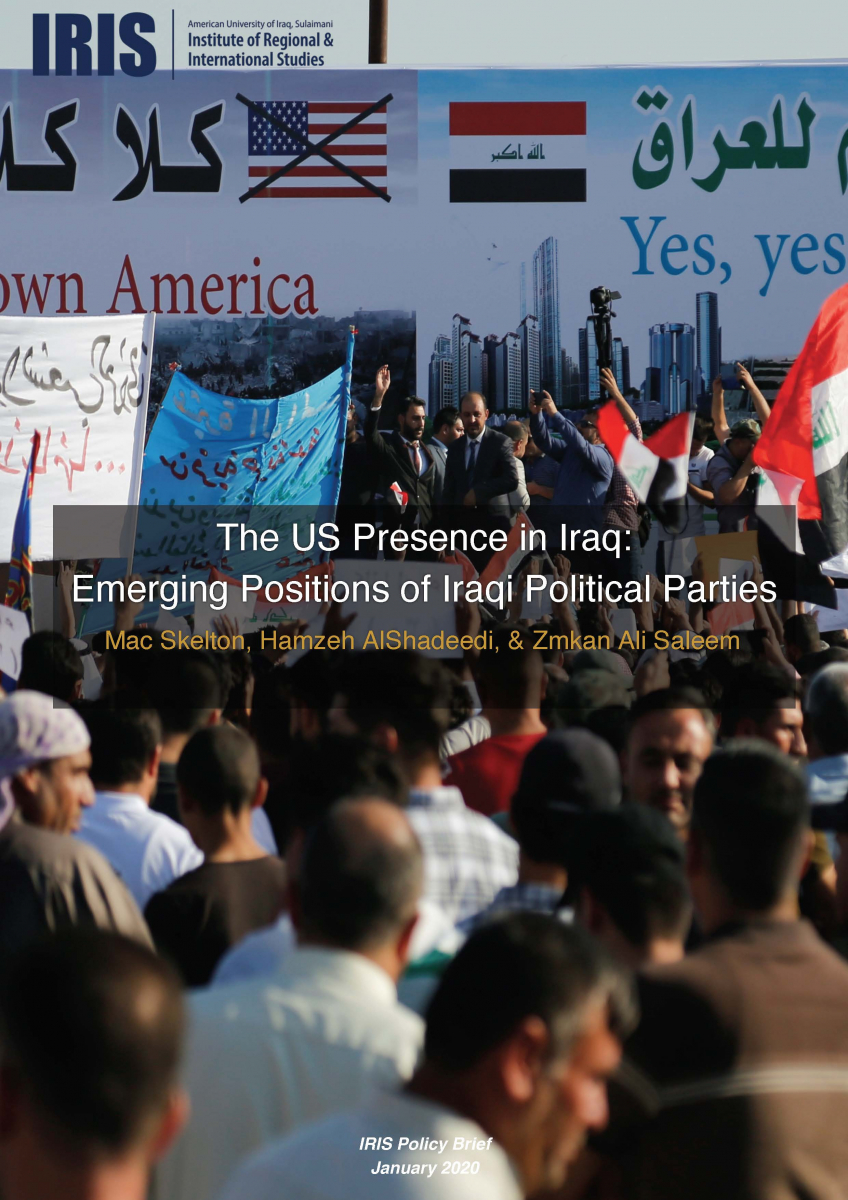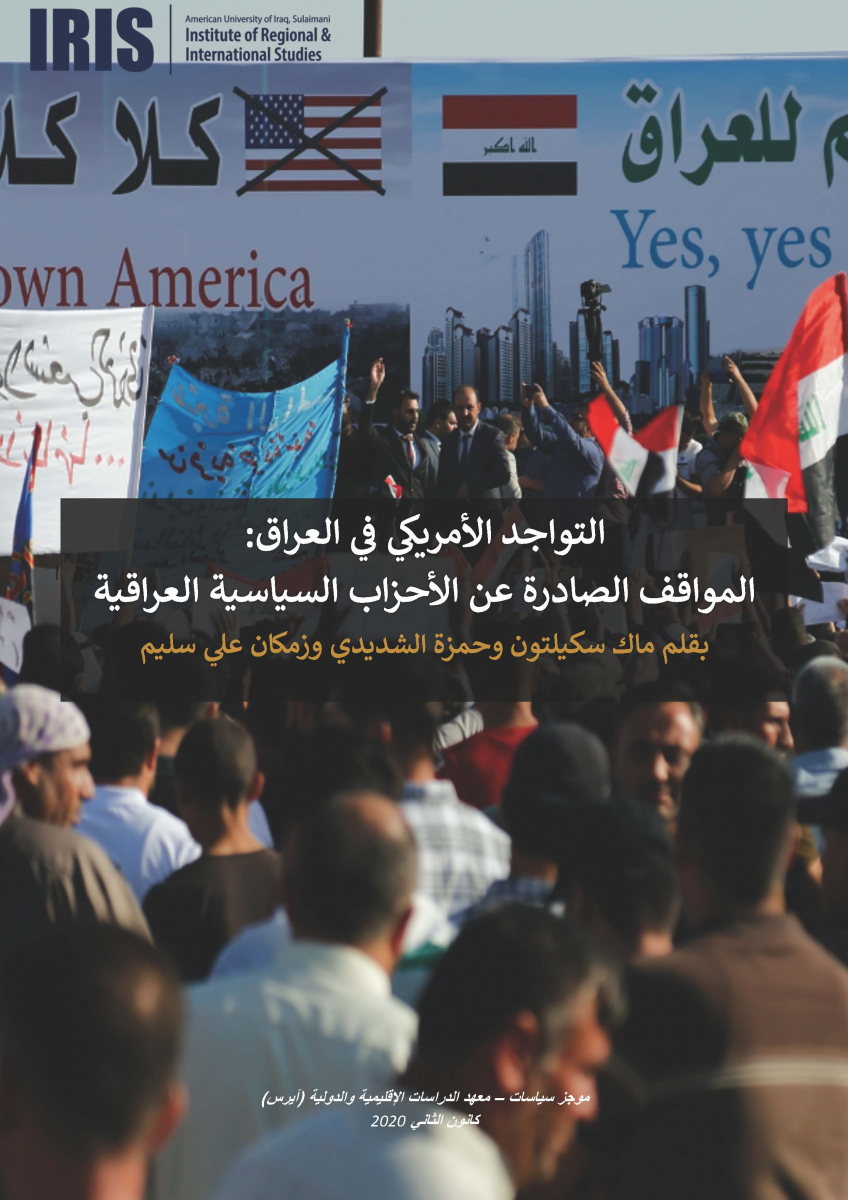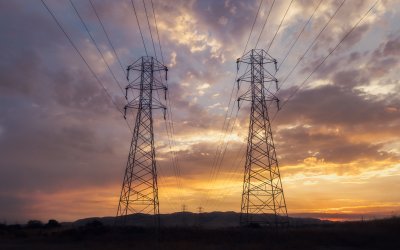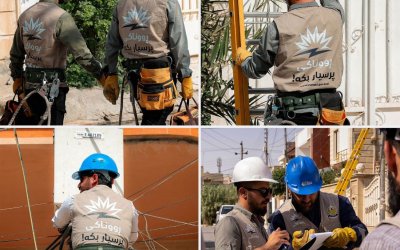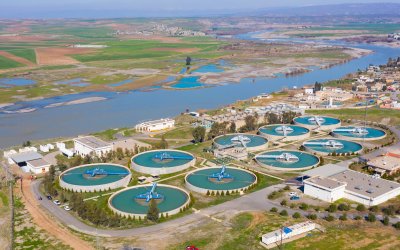Amidst the ongoing policy conversation about US-Iran escalations and the consequences for the American presence in the region, scant attention has been given to the nuances of the positions of different Iraqi political factions on these matters. Perhaps this is because policymakers assume that Iran will ultimately dictate how Iraq’s major political actors move forward, and so too closely examining the various stances of domestic parties is beside the point. Recent history has shown, however, that even the groups in Iraq with the closest ties to Iran simultaneously operate according to their own political objectives and strategic interests, as they continuously compete with one another for influence and economic resources. If we turn to the present moment, one cannot deny that a symbolic unity among the main Shia parties into an anti-American and pro-Iranian position has certainly emerged. The non-binding resolution to expel American forces included nearly all Shia parties, with the exception of Haidar Abadi’s Nasr coalition. Yet, longstanding diverging political and economic interests among the various Shia blocs have and will continue to manifest themselves both publicly and under the surface – with important implications for the potential removal of foreign forces. Meanwhile, the Kurdish factions have staked out a very delicate position. Representatives from both major Kurdish parties attended commemorations of Soleimani in Erbil and Baghdad, but they have simultaneously given indication that they will oppose any change to the status of American troops. The Sunni Arab parties have indicated alignment with the Kurdish position; however, endemic divisions among these factions mean that any attempt to speculate about their final positions would be premature. Finally, the protest movement has attempted to divorce itself from the US-Iran conflict altogether. Unfortunately, the hard-fought political influence the protest movement had obtained after months of demonstrations has been severely hampered by the recent developments. But they are promising new waves of protests. We analyze the emerging positions of Iraq’s various political actors
This piece was originally co-published with the London School of Economics Middle East Centre.
Click here or the photo below for the full report.
التواجد الأمريكي في العراق: المواقف الصادرة عن الأحزاب السياسية العراقية
في خضم المحادثات السياسية الجارية بشأن التصعيدات بين الولايات المتحدة وإيران وتبعاتها على التواجد الأمريكي في المنطقة، لم يولَ اهتمام كاف للفوارق الدقيقة بين مواقف الأطراف السياسية العراقية المختلفة من تلك المسائل. وربما يعود سبب ذلك إلى أن صنّاع السياسات قد افترضوا أن إيران – في نهاية المطاف – ستملي على الفاعلين السياسيين الرئيسيين في العراق سُبُل المضي قدماً، وبالتالي فإن أية دراسة متأنية للمواقف المتباينة للأحزاب المحلية لن تكون ذات مغزى. ولكن التاريخ الحديث في العراق قد أظهر لنا أن حتى الجماعات الأوثق صلة بإيران تعمل حسب أهدافها السياسية ومصالحها الاستراتيجية الخاصة، بينما تتنافس في الحين ذاته فيما بينها باستمرار على النفوذ والموارد الاقتصادية. وإذا نظرنا إلى اللحظة الراهنة، فلا يمكننا إنكار أن وحدة رمزية قد نشأت دون شك بين الأحزاب الشيعية الرئيسية في مواقفها المعادية لأمريكا والموالية لإيران. وإن القرار غير الملزِم بطرد القوات الأمريكية من العراق قد شاركت به جميع الأحزاب الشيعية تقريباً، فيما عدا ائتلاف النصر الذي يقوده حيدر العبادي. ومع ذلك، فإن المصالح السياسية والاقتصادية المتضاربة منذ زمن طويل بين الكتل الشيعية المتعددة تجلّت وستظل تتجلى بأشكال علنية وخفية، ولها تداعيات مهمة على إمكانية إخراج القوات الأجنبية. في هذه الأثناء، كان موقف الفصائل الكردية حرجاً للغاية. فقد حضر ممثلون من الحزبَين الكرديين الرئيسيين مراسم تأبين سليماني في أربيل وبغداد، إلا أنهم في الحين ذاته أشاروا إلى أنهم سيعارضون حدوث أي تغيير في وضع القوات الأمريكية. وجاءت مواقف الأحزاب السنيّة العربية متوافقة مع الموقف الكردي، إلا أن الانقسامات المزمنة بين فصائلها تعني أن أية محاولة في التكهن بمواقفها النهائية ستكون سابقة لأوانها. أما حركة الاحتجاجات، فقد حاولت النأي بنفسها عن الصراع الأمريكي – الإيراني برمّته. وإن التأثير السياسي الذي كافحت حركة الاحتجاجات من أجله وحصلت عليه بعد أشهر من المظاهرات قد أعيق كثيراً بسبب التطورات الأخيرة، ولكن هناك موجات جديدة واعدة من الاحتجاجات. نورد أدناه تحليلاً للمواقف الناشئة للجهات الفاعلة السياسية المتنوعة في العراق
نُشرت هذه المقالة في الاصل باللغة الإنكليزية وبالاشتراك مع مركز لندن للشرق الأوسط في كلية لندن للاقتصاد
انقر هنا أو على غلاف المقال أدناه، للحصول على الملخص الكامل

